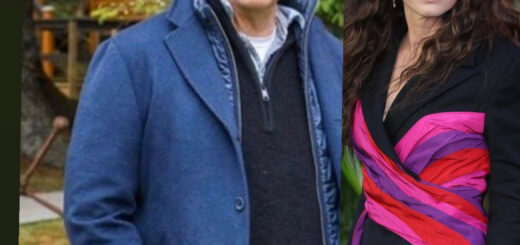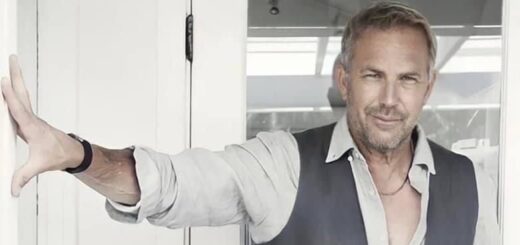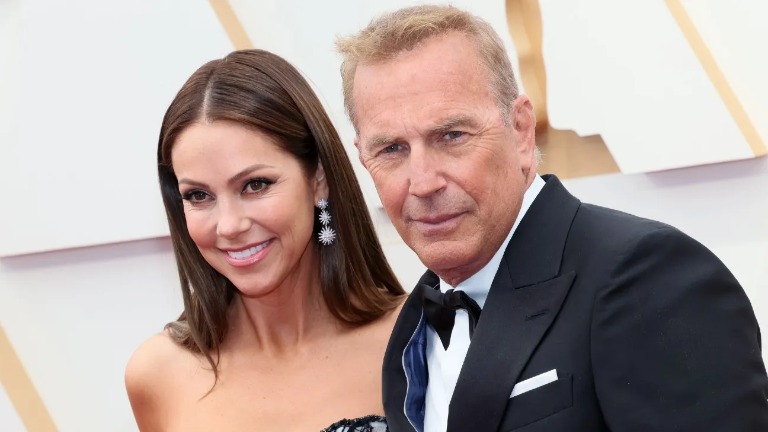“Kevin Costner Discusses Premiering His Western Epic ‘Horizon’ at Cannes”
A month before the release of the first installment of his multi-part Western saga “Horizon: An American Saga,” Kevin Costner visited the Cannes Film Festival to showcase his self-financed passion project.
“Two of my boys are out fishing right now,” Costner said with a smile during an interview at the Carlton Hotel. “And the three girls have found their way onto a boat. So here I am, promoting my movie.”
The project is actually two films, with plans for a total of four. “Horizon: Chapter One,” which runs three hours, is set to hit theaters on June 28, released by Warner Bros., with “Chapter Two” following on August 16. Costner has scripts ready for parts three and four as well.
This marks only the fourth time Costner, 69, has taken on the role of director, following “Dances With Wolves” (1990), “The Postman” (1997), and “Open Range” (2003). His passion for storytelling and character shines through in the sweeping epic “Horizon,” featuring a cast that includes Sienna Miller, Abbey Lee, and Sam Worthington. However, this is also his biggest financial gamble yet; to fund the over $100 million production, he mortgaged his seaside estate in Santa Barbara, California. Costner has been trying to bring “Horizon” to life for more than three decades. “I’m incredibly grateful for Cannes. As an independent filmmaker, I’m here on my own,” Costner shared. “This is a pivotal moment for me, helping to raise awareness for a movie I believe in. I don’t have endless funds for marketing, but I have my time and this platform.”
What motivated you to invest so much into “Horizon”? Why was it worth it?
COSTNER: You can spend your life just trying to amass wealth, and while I’m like anyone else and would like it to grow, not at the expense of pursuing what I love. If no one else will help me create something I believe in, I’ll put my own money into it. I see the entertainment value, and while commerce is on my mind, it doesn’t overshadow the essence of what I want to portray. I refuse to let fear control my instincts. If I were watching a movie about myself and thought, “Oh, don’t risk your money,” that would be disappointing.
Was it a straightforward decision? Did you hesitate about mortgaging your estate?
COSTNER: It wasn’t easy, but it was a necessary choice. I found myself questioning why I had to go this route. I believe I’m creating mainstream entertainment. I don’t see myself as avant-garde, but my stories often have unique elements. For instance, in a wagon trail scene, I wanted to depict a woman bathing, highlighting her desire for cleanliness, which could also cost her life. That scene became crucial for emphasizing the following moments. I believe such scenes are as vital as action sequences. If mainstream movies aren’t willing to include them, then that’s a missed opportunity.
Could this have been developed into a series?
COSTNER: Absolutely. Eventually, it will be. They’ll break it down into various parts. After four installments, we could have 13 to 14 hours of content, which could easily be expanded into a series. This approach is essential for me, and since I funded it, I had control over its distribution.
The release strategy is ambitious, with the second film debuting just two months after the first. What drew you to that plan?
COSTNER: The studio proposed it. I anticipated a quicker release, every four to five months, which might have been easier. However, they believe that having the second installment come out soon after will keep the story fresh in viewers’ minds. I’ve included montages in each film to bridge the narrative.
Having directed “Dances With Wolves” and starred in “Wyatt Earp” and “Yellowstone,” what continues to draw you to Westerns?
COSTNER: I appreciate observing authentic behavior in men. I make movies that resonate with men, while also ensuring strong female characters, as they are crucial to the narrative. The film’s backbone is made up of women. I’m not interested in portraying foolish behavior; I want to highlight moments of integrity in desperate situations. For example, the heroism of a boy who stays with his father in a moment of crisis is incredibly powerful. That’s my son (Hayes Costner), and watching that scene was emotional for me.


